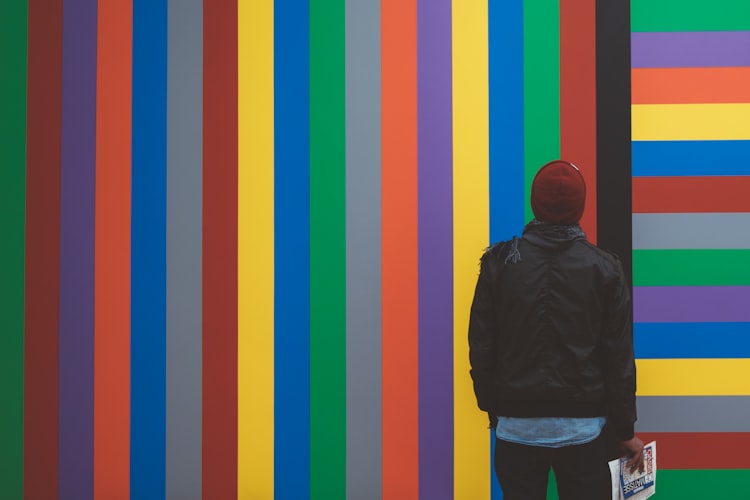 |
| Photo by Mario Gogh. |
I just got home from a panel discussion called Diversity Versus Decolonization: An Honest Conversation in Technicolour where I was one of the case studies on what happens when a white person in a position of authority gets called out on systemic racism (spoiler alert: they were right) (also, I wrote a little about what I learned from that experience here).
I have some thoughts on the evening.
1) Before heading over, I was reading Anne Lamott's new book Almost Everything, and came across a passage that was an absolutely perfect place to ground myself before participating in this conversation:
"When we are stuck in our convictions and personas, we enter into the disease of having good ideas and being right. My Jesuit friend Tom used to say that he never noticed what he was feeling: only that he was right. We think we have a lock on truth, with our burnished surfaces and articulation, but the bigger we pump ourselves up, the easier we are to prick with a pin. And the bigger we get, the harder it is to see the earth under our feet."
If you are inclined to fling this passage at someone whom you consider to be impossibly self-righteous, take a moment. What is the ground beneath your feet? Could it be that you, also, think you are right?
2) I became aware of a pattern during the panel discussion. This is a pattern that will likely be obvious to racialized people, but thanks to white supremacy, I just noticed it:
Step One: A white person is in a position of influence/power/authority;
Step Two: This white person knows there is, or worries there might be, inequality in their area of influence/power/authority, but doesn't really know what to do about it or the extent of the problem, so they let it stew in the back of their minds, until;
Step Three: A person of colour takes the risk to point it out, and then likely has to do some or all of the work to help solve it.
Here is the call on the other side of this realization: if you are a white person, you have any kind of authority or influence, and you have a bad feeling that there is some kind of racism or other exclusion going on, systemic or otherwise, SAY SOMETHING.
I know, it's scary. I know, you don't want to point a finger--at someone else or at yourself. But what is the alternative? That the injustice you are worried might be there continues? That the oppressed must risk their safety, livelihood, or even life by pointing it out?
Remember: being able to feel vaguely uncomfortable with the idea that racism may be happening while also being able to go on with life unscathed is a super privileged thing.
3) It's okay to have hurt feelings.
That's it. There was a fair amount of talk of feeling hurt, angry, attacked, shamed, frustrated on the panel - and yet we all survived and even managed to work together with the people who made us feel that way. Because feeling bad isn't the end of the world, or of a relationship. (Thank goodness.)
4) My fellow white people: we have got to start holding ourselves to a higher standard. I, and my fellow white panellists, were profusely thanked because we weren't assholes when people of colour had conversations with us about racism.
Not being an asshole should not be a thing that deserves thanks, profuse or otherwise. If that's exceptional, we have to really pull our socks up.
(In fact, a lot of us haven't even put our socks on yet. They are balled up in a corner somewhere. Go find your socks! Put them on and pull them up! Be intentional about not being an asshole!)
5) As I left, I popped in my earbuds and turned on the podcast I was listening to, which just happened to be a sermon by my friend Nelson Boschman. He was talking about poverty and systems of financial exclusion and corruption, not the topic of the panel, but it all intersects, and this was the perfect sentiment I heard almost immediately after leaving:
"We are part of larger systems and patterns that are highly resistant to the common good."
Can. I. Get. An. AMEN?!?!!
(Also: so what are we going to do about it?)
 |
| It's the panel! Photo by David C. Jones |
Sign up for my email newsletter for a weekly digest and bonus content!

No comments:
Post a Comment